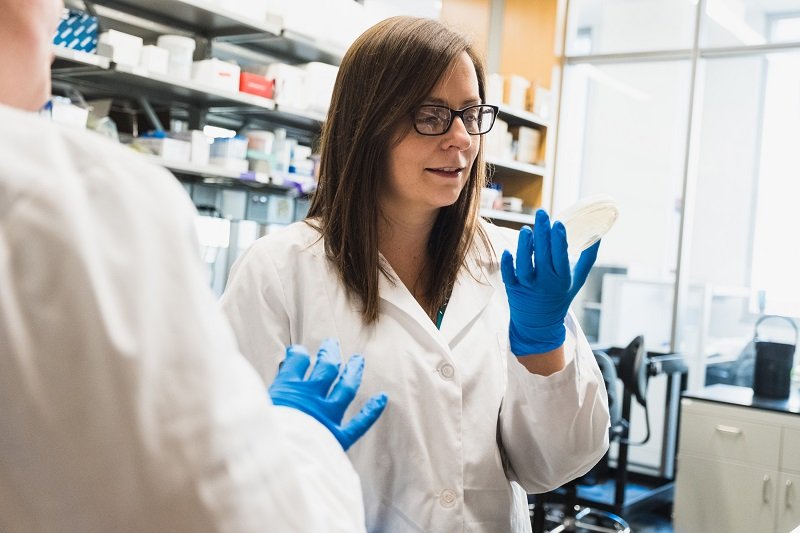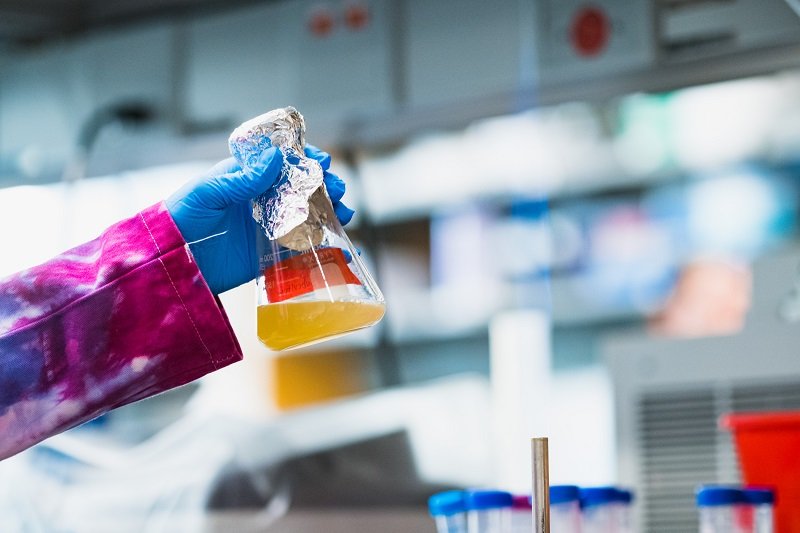Innovative Impact
Dr. Mallary Greenlee-Wacker, in the Department of Biology, leads her students in innovative research on the immune system, and their work has the potential to provide insights into sepsis. Sepsis is a life-threatening medical condition that results when the immune responds to an infection with an inappropriately strong reaction. Normally, following an infection, the body produces inflammation in the infected area and sends white blood cells to the area to destroy the infection. However, during sepsis, the immune system responds too strongly, and inflammation and blood clotting occurs throughout the entire body – this can lead to organ failure and death.
 To better understand sepsis and inflammation, Dr. Wacker and her students study extracellular vesicles. Extracellular vesicles are particles that carry materials to others cells, but how these vesicles are produced and act after they are released from white blood cells during infection is not entirely understood. Curious to learn more about how extracellular vesicles are produced and communicate, Dr. Wacker and her team take to the lab to recreate septic conditions in a test tube. Here, they collect blood from healthy individuals, isolate their white blood cells, expose those cells to bacteria and examine the extracellular vesicles.
To better understand sepsis and inflammation, Dr. Wacker and her students study extracellular vesicles. Extracellular vesicles are particles that carry materials to others cells, but how these vesicles are produced and act after they are released from white blood cells during infection is not entirely understood. Curious to learn more about how extracellular vesicles are produced and communicate, Dr. Wacker and her team take to the lab to recreate septic conditions in a test tube. Here, they collect blood from healthy individuals, isolate their white blood cells, expose those cells to bacteria and examine the extracellular vesicles.
The goal is to determine whether the extracellular vesicles contribute to inflammation, and test whether these extracellular vesicles can be altered to be protective. “If the extracellular vesicles are carrying ‘bad’ cargo [information], the challenge is to change it to be good and reduce inflammation” Dr. Wacker shares.
Though still in progress, Dr. Wacker is confident that she and her students’ research will enhance biologists' overall understanding of extracellular vesicles which has the potential to minimize inflammation in patients with sepsis.

At CMU We Do Research, We Do Real World
Story by ORGS intern Hailey Nelson
August 2021